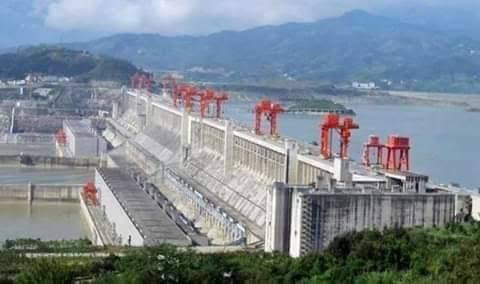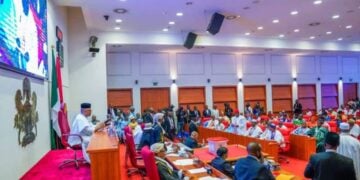80% Of Nigeria’s Hydropower Potential Untapped – Federal Govt
BY PATIENCE IVIE IHEJIRIKA, Abuja
Minister of Power, Abubakar Aliyu, has said about 80 percent of Nigeria’s hydropower potential is underdeveloped as the country currently has an installed hydropower capacity of 2,380MW from four main hydropower plants.
The minister, who stated this at the maiden conference of Nigeria Hydropower Professional Association (NHPA) in Abuja, said the four main hydropower plants include Kainji hydropower plant, Jebba hydropower plant, Shiroro hydropower plant and Dadinkowa hydropower plant.
Represented by Dapshim Abubakar, the minister said a lot of these power potential lay in the Niger and Benue rivers as well as Lake Chad basin.
Abubakar, therefore, said prioritising hydropower resources in the country’s energy diversification could not be over-emphasised.
Hydropower or hydroelectric power is a renewable source of energy that generates power by using a dam or diversion structure to alter the natural flow of a river or other body of water.
In his address, the pioneer national vice president 11, NHPA, Prof. Adeniyi Olayanju, said of the about 80 percent of untapped hydropower, the total 5.5KW-hr/m2/day of solar radiation is not utilised and wind energy resources remain unexploited.
He said the solution lay in creating a mixed supply of energy, while stressing the need to embrace the knowledge of science, technology and innovation with hydropower as a core component and a driving force.
The chairperson, NHPA Board of Trustees, Prof. Bolaji Sule, observed that Nigerians faced acute shortage of energy availability as millions of people did not have access to electricity, while many were living with irregular or inadequate supply coupled with inconsistent and unrepairable energy services.
He said the role of hydropower professional engineers of ensuring sustainable energy development in the country was to set a professional platform for advancing and promoting sustainable energy development in compliance with global best practice.
This role, he said was the justification for the establishment of the NHPA body, adding that the establishment of the body was critical to achieving energy security on a sustainable basis in the country and to capture the numerous factors that shape energy sector development holistically.
We’ve got the edge. Get real-time reports, breaking scoops, and exclusive angles delivered straight to your phone. Don’t settle for stale news. Join LEADERSHIP NEWS on WhatsApp for 24/7 updates →
Join Our WhatsApp Channel










